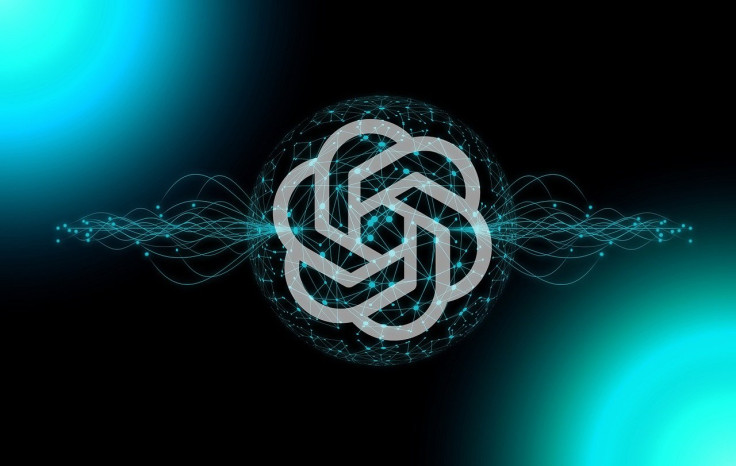ChatGPT beats 99% of humans hands down in creativity tests
ChatGPT managed to achieve top percentile for both fluency and originality in this study.

According to a new study, OpenAI's AI bot ChatGPT is more creative than 99 per cent of humans. It is no secret that AI (artificial intelligence) is taking the world by storm and making great strides.
Now, a study conducted by researchers at the University of Montana shows that AI is capable of surpassing humans' creativity. This study confirmed that ChatGPT matched the top 1 per cent of human thinkers on a standard creativity test.
A separate NYU study recently revealed that ChatGPT's healthcare responses are similar to responses provided by human healthcare providers. Researchers at the University of Montana used the TTCT (Torrance Test of Creativity) to evaluate the performance of the widely-popular AI chatbot.
How was the study done?
The researchers asked eight questions to ChatGPT and examined its responses. They then collected responses from 24 UM students and compared them to responses from 2,700 college students who took the TTCT in 2016. These submissions were scored by Academic Testing Services, which did not know AI was involved.
It is worth noting that the TTCT comprises a verbal, as well as a graphic assessment. These assessments are designed to gauge divergent thinking, which alludes to a method used to generate creative ideas. The examiner provides pictures and/or verbal prompts and expects written responses.
ChatGPT more creative than 99% of humans
— Kyle Balmer | Prompt Entrepreneur (@iamkylebalmer) July 17, 2023
A study from the University of Montana reveals that ChatGPT can match the creative thinking abilities of the top 1% of human thinkers in Torrance Tests of Creative Thinking
Welp. That’s the ballgame folks
For instance, the test taker might show them a picture of an event and ask them to speculate on an outcome. Alternatively, they might show a product and ask how it can be improved. Their responses helped the examiners to asses three vital psychological traits including:
- Flexibility: A variety of different types of ideas
- Originality: how unusual the idea is
- Fluency: the number of related ideas
As part of the graphic assessment, the test taker has to answer questions by drawing pictures.
What did the study find?
Interestingly, the study revealed that the creativity in the AI's responses was comparable to that of the most creative human beings taking the test. In fact, the research team claims ChatGPT beat most students hands down as far as creativity is concerned.
Unsurprisingly, assistant prof. at the Univ. of Montana, Dr. Erik Guzik was pretty impressed by the study result. Guzik describes creativity as the ability to do things differently. One of his favourite definitions of entrepreneurship is that being "an entrepreneur is about thinking differently."
The world of artificial intelligence has taken a giant leap forward.
— IV Times (@iv_times) July 15, 2023
A recent study led by Dr. Erik Guzik at the University of Montana has shown that AI, specifically ChatGPT powered by the GPT-4 engine, can match the top 1% of human thinkers in terms of creativity.
This is a… pic.twitter.com/yCmVQ9OQdC
Furthermore, Guzik noted that it is interesting that AI has the potential to help humans add creative thinking to their businesses and innovation process. Recently surfaced data also confirms that a considerable number of students are applying for computing courses, amid the skyrocketing popularity of artificial intelligence.
Researchers at the University of Montana found that ChatGPT was in the top percentile not only for fluency but also for originality. However, the AI bot slipped to the 97th percentile for flexibility, which refers to the ability to come up with different types and categories of ideas. Still, Guzik believes ChatGPT might be the driver of innovation in the future.
What does this study imply?
AI has been used for simplifying and expediting lengthy tasks like creating music and art. However, the Univ. of Montana study suggests AI can come in handy for generating new and innovative ideas as well. This could be particularly useful in various fields including ads, product development, and marketing.
In other words, AI can play a vital role in areas that require creative minds. However, the study also raises questions about humans' role in creative trends. So, it is unclear whether human creativity will still be required if AI continues to become more advanced. Neuro Science News, experts claim AI will always need a touch of humans.
According to these experts, AI cannot learn human emotions and cannot feel what humans feel. However, some suggest AI and humans will team up to work in the same realm in the future. If this speculation turns out to be true, AI might be used to create the idea, while humans will modify and use them.
© Copyright IBTimes 2024. All rights reserved.






